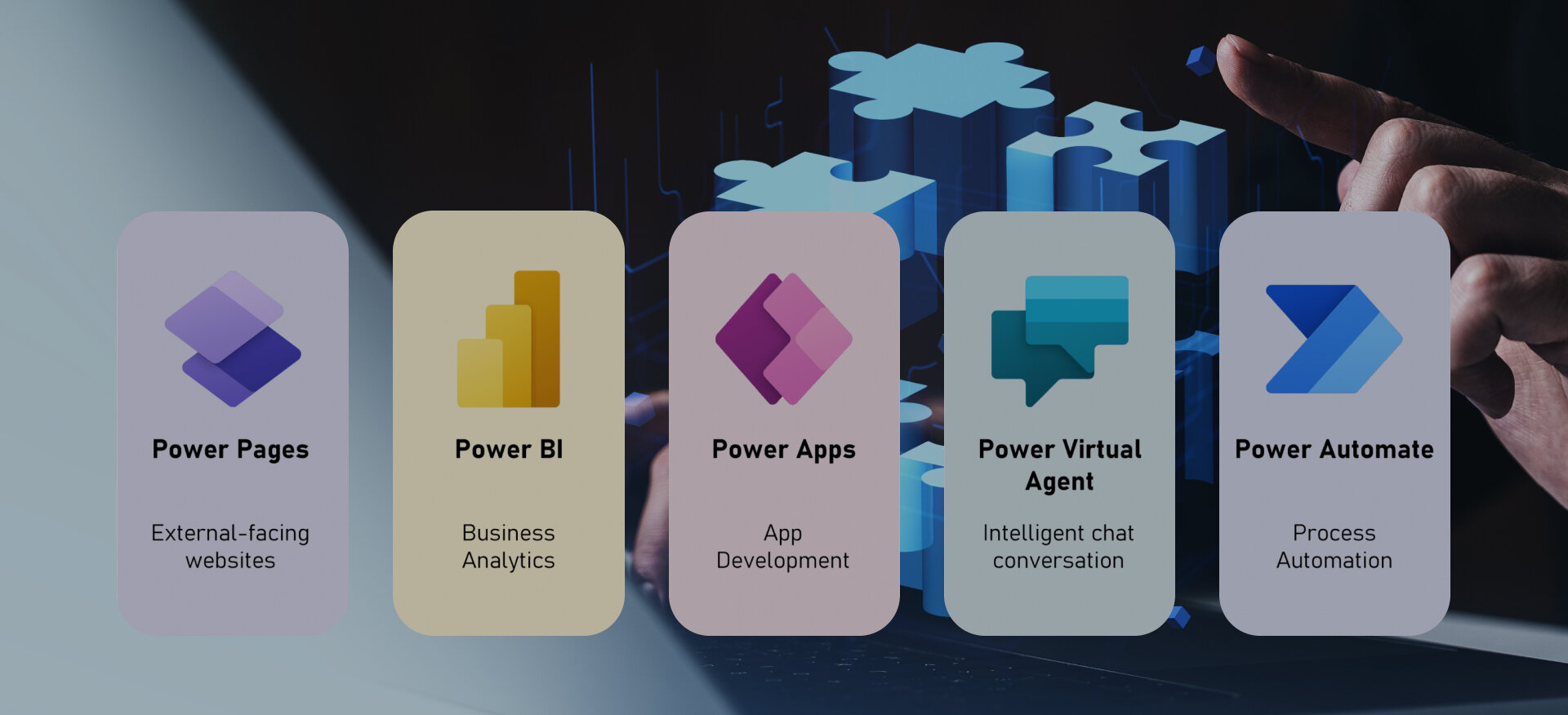In today’s digital world, businesses compete to capture the attention of online users. Whether it’s browsing a website, watching a video, or clicking on an ad, every interaction generates data.
But how do businesses track users across different websites, devices, and platforms? The answer lies in digital marketing for advanced tracking technologies, data analytics, and personalized marketing techniques.
Digital marketers use a combination of cookies, tracking pixels, device fingerprinting, and behavioral analytics to monitor user activity. This data helps businesses deliver personalized content, targeted advertisements, and optimized customer experiences based on user behavior.
However, with growing concerns about privacy laws like CCPA, marketers must balance effective tracking with user consent and data protection.
This article will explore what is the digital marketing strategy that tracks users across the web. We’ll also discuss how businesses use data tracking to improve conversions and how privacy regulations impact modern marketing techniques. Additionally, we'll cover digital marketing strategy for websites and online marketing tracking techniques.
What Is The Digital Marketing Strategy That Tracks Users Across The Web?
The digital marketing strategy that tracks users across the web involves monitoring user behavior across websites, apps, and digital platforms to gain insights into their preferences, interests, and purchase intent. By leveraging tools like cookies, pixels, and AI-driven analytics, businesses can follow users’ digital footprints, creating a cohesive picture of their online journey. This approach enables marketers to deliver highly personalized experiences, such as targeted ads or customized website content, that align with user needs.
Tracking users across the web is not just about collecting data; it’s about using that data to craft meaningful interactions. For example, a user who browses running shoes on an e-commerce site might later see ads for those shoes on social media platforms. This is achieved through retargeting, a key component of online marketing tracking, which ensures businesses stay top-of-mind for potential customers.
How Does Tracking Users Across The Web Work?
Tracking users across the web relies on a combination of technologies and methodologies. Here’s a breakdown of the key components:
1. Cookies and Tracking Pixels
Cookies are small text files stored on a user’s device that track their activity on a website. They store information like login details, browsing history, and preferences, enabling businesses to personalize content. Tracking pixels, on the other hand, are tiny, invisible images embedded in websites or emails that collect data when loaded.
2. Device Fingerprinting
As privacy regulations evolve and third-party cookies phase out, device fingerprinting has emerged as an alternative. This technique creates a unique identifier based on a user’s device settings, browser type, and other characteristics. Unlike cookies, device fingerprinting doesn’t rely on stored files, making it a more resilient option for online marketing tracking in a cookieless future.
3. Login-Based Tracking
When users log into a website or app using credentials, businesses can track their activity across devices. This method is particularly effective for platforms like e-commerce sites or social media, where users maintain accounts. By analyzing login data, marketers can tailor experiences based on past interactions, enhancing the effectiveness of their digital marketing strategy for websites.
4. AI and Machine Learning
Artificial Intelligence and Machine Learning have revolutionized how businesses track and analyze user behavior. Traditional tracking methods rely on predefined rules, but AI-driven systems can detect patterns and make predictions in real time.
Some key AI applications in user tracking include:
-
Predictive Analytics: AI analyzes past behavior to predict future actions, helping businesses anticipate customer needs.
-
Automated Customer Segmentation: Machine learning algorithms group users based on their behavior, preferences, and buying intent.
5. Server-Side Tracking
With privacy regulations like GDPR and CCPA tightening, server-side tracking has gained traction. Unlike client-side tracking, which relies on browser-based cookies, server-side tracking processes data on the company’s servers, offering greater control and compliance. For example, Google Analytics 4 (GA4) now supports server-side tracking, allowing businesses to track user behavior while adhering to regulations like CCPA. This method ensures a digital marketing strategy that tracks users across the web remains secure and privacy-friendly.
Check Our Digital Darketing Service
Why Track Users Across The Web?
Tracking users across the web provides businesses with a competitive edge by enabling data-driven decisions. Here are some key benefits:
1. Competitive Advantage
Companies that effectively track and analyze user data gain insights into market trends, customer demands, and competitor strategies. By implementing a digital marketing strategy that tracks users across the web, businesses can build data-driven campaigns that boost engagement, increase sales, and improve overall brand performance.
2. Personalized Marketing
Tracking enables businesses to deliver personalized content that resonates with users. For instance, AI-powered chatbots can engage users in real-time conversations, gathering insights about their needs without requiring intrusive tracking.
3. Optimized Ad Spend
By understanding user behavior, businesses can allocate their advertising budgets more effectively. For example, retargeting campaigns can focus on users who have already shown interest, increasing the likelihood of conversions.
4. Enhanced Customer Trust
Companies that prioritize ethical tracking and transparency will build stronger customer trust and long-term brand loyalty. As digital privacy regulations tighten and users demand more control over their data, businesses are rethinking how they track and engage with consumers. The traditional reliance on third-party cookies and intrusive tracking methods is being phased out, making way for privacy-first digital marketing strategies for websites that still provide valuable insights without violating user trust.
Emerging Trends in User Tracking
The digital marketing strategy that tracks users across the web is evolving rapidly. Here are some trends shaping its future:
-
Contextual Targeting: With cookies fading, contextual targeting—placing ads based on the content of a webpage—offers a privacy-friendly alternative.
-
Federated Learning: This AI-driven approach allows data analysis without centralizing user information, enhancing privacy while maintaining insights.
-
Unified ID Solutions: Initiatives like Unified ID 2.0 aim to replace cookies with anonymized identifiers, balancing personalization and privacy.
Challenges of User Tracking
While the digital marketing strategy that tracks users across the web offers immense benefits, it also presents challenges:
-
Privacy Regulations: Laws like GDPR and CCPA impose strict rules on data collection, requiring businesses to obtain user consent and ensure data security.
-
Ad Blockers: Increasing use of ad blockers limits the effectiveness of tracking pixels and cookies.
-
Data Overload: The sheer volume of data can overwhelm marketers, making it critical to use AI and analytics tools to extract meaningful insights.
How to Implement an Effective Tracking Strategy?
To leverage online marketing tracking effectively, businesses should follow these steps:
-
Define Goals: Identify what you want to achieve, such as increasing conversions or improving brand awareness.
-
Choose the Right Tools: Use platforms like Google Analytics 4, HubSpot, or AI-driven tools for comprehensive tracking.
-
Ensure Compliance: Adhere to privacy laws by obtaining user consent and using secure tracking methods.
-
Analyze and Optimize: Continuously monitor data to refine campaigns and improve ROI.
Get a Customized Digital Marketing Strategy Today
How Digital Marketers Track Users Across the Web?
User tracking in digital marketing strategy involves collecting data on how users interact with websites, apps, and online platforms. This process allows businesses to create a detailed customer profile, improve user experience, and drive sales through retargeting and personalized marketing campaigns.
Common Tracking Methods Used in Digital Marketing
|
Tracking Method |
Relies on Cookies |
Privacy-Friendly |
Personalization Level |
Adoption Rate (2024) |
|
Third-Party Cookies |
Yes |
No |
High |
Declining (25%) |
|
First-Party Data |
No |
Yes |
High |
Growing (60%) |
|
Zero-Party Data |
No |
Yes |
Very High |
Emerging (15%) |
|
Contextual Targeting |
No |
Yes |
Moderate |
Rising (30%) |
|
Blockchain-Based Tracking |
No |
Yes |
High |
Emerging (10%) |
User tracking plays a crucial role in targeted advertising, user experience personalization, and conversion rate optimization. However, with increasing privacy concerns, businesses must use these methods ethically and legally.
Why Do Businesses Use a Digital Marketing Strategy That Tracks Users?
Tracking users online is not just about advertising; it’s about understanding customer behavior and improving marketing performance. Companies invest in advanced analytics and AI-driven tracking solutions to make data-driven decisions that enhance customer experiences.
Here’s why tracking users across the web is essential for digital marketing success:
-
Personalized Advertising – Tracking helps businesses serve customized ads based on user preferences and past behavior, increasing ad relevance and engagement.
-
Retargeting and Remarketing –If a user visits a website but doesn’t complete a purchase, retargeting ads can remind them of the product they viewed, increasing conversion rates.
-
Customer Journey Optimization – Understanding how users move through a sales funnel allows marketers to improve website navigation, messaging, and CTAs (call-to-actions).
-
A/B Testing for Better Conversions – Data tracking allows businesses to test different ad creatives, landing pages, and Email Marketing campaigns to see which versions perform best.
-
Enhanced User Experience – Behavioral tracking helps websites recommend relevant content, suggest products, and tailor search results to each user’s preferences.
-
Competitive Advantage – Companies that effectively track and analyze user data gain insights into market trends, customer demands, and competitor strategies.
By implementing a digital marketing strategy that tracks users, businesses can build data-driven campaigns that boost engagement, increase sales, and improve overall brand performance.
The Role of AI and Machine Learning in User Tracking
Artificial Intelligence (AI) and Machine Learning (ML) have revolutionized how businesses track and analyze user behavior. Traditional tracking methods rely on predefined rules, but AI-driven systems can detect patterns and make predictions in real time.
Some key AI applications in user tracking include:
-
Predictive Analytics – AI analyzes past behavior to predict future actions, helping businesses anticipate customer needs.
-
Automated Customer Segmentation – Machine learning algorithms group users based on their behavior, preferences, and buying intent.
-
Chatbots and Personalized Recommendations – AI-powered chatbots provide instant responses while tracking user conversations to offer personalized suggestions.
-
Voice Search and Smart Assistants – With the rise of voice search, AI processes voice commands to deliver tailored search results and advertisements.
AI-driven tracking enhances efficiency, reduces manual data analysis, and improves marketing accuracy. However, businesses must also ensure compliance with privacy laws when using AI for user tracking.
Privacy Concerns and Regulations in User Tracking
With growing concerns about data privacy, governments worldwide have introduced strict regulations to protect consumer information. Marketers must comply with laws like CCPA and Google’s evolving privacy policies to avoid legal consequences.
Key Privacy Regulations Affecting Digital Marketing
California Consumer Privacy Act (CCPA) – United States
- Gives consumers control over how businesses collect, store, and sell their personal data.
- Requires a clear opt-out option for data tracking and sharing.
Google’s Privacy Updates
- Google announced plans to phase out third-party cookies and introduce Privacy Sandbox, changing how marketers track users online.
These regulations mean businesses must balance effective marketing strategies with consumer data protection. Companies that prioritize ethical tracking and transparency will build stronger customer trust and long-term brand loyalty.
The Future of Digital Marketing Strategy That Tracks Users
As digital privacy regulations tighten and users demand more control over their data, businesses are rethinking how they track and engage with consumers.
The traditional reliance on third-party cookies and intrusive tracking methods is being phased out, making way for privacy-first digital marketing strategies that still provide valuable insights without violating user trust.
Emerging solutions such as server-side tracking, AI-driven predictive marketing, and blockchain-based data security are becoming the foundation of future-proof marketing strategies.
1. Zero-Party Data: Building Trust Through Voluntary Sharing
As consumers become more aware of data privacy, they are less likely to tolerate tracking that happens without their consent. This is why zero-party data collection is gaining traction as a key alternative to traditional tracking methods.
Zero-party data refers to information that users willingly share with brands, such as preferences, interests, and purchase intentions.
Unlike third-party data, which is collected without direct user involvement, zero-party data is provided voluntarily through interactive surveys, quizzes, loyalty programs, and preference centers.
Brands that implement zero-party data collection effectively can build personalized marketing campaigns without invading user privacy.
2. Server-Side Tracking: A More Secure Way to Collect Data
With browser-based tracking facing increasing limitations due to cookie restrictions and ad blockers, server-side tracking is becoming a preferred alternative. Unlike traditional tracking that relies on third-party scripts and cookies, server-side tracking collects data directly from the brand’s server.
This approach offers several advantages:
- Greater data accuracy – Server-side tracking reduces data loss caused by browser restrictions and ad blockers.
- Enhanced security – Since data is processed on the brand’s own server, it is less vulnerable to third-party breaches.
- Better compliance – It aligns with privacy laws by giving businesses direct control over how data is collected and used.
For example, Google Analytics 4 (GA4) now supports server-side tracking, allowing businesses to track user behavior while complying with regulations like CCPA. By shifting to server-side tracking, brands can continue collecting valuable insights while ensuring a more secure and privacy-friendly marketing strategy.
3. AI-Driven Predictive Marketing: Understanding Users Without Intrusive Tracking
Artificial intelligence (AI) is revolutionizing digital marketing by enabling brands to predict user behavior without needing to track every action. Instead of relying on cookies and tracking pixels, AI analyzes historical data, behavioral patterns, and intent signals to deliver personalized marketing campaigns.
AI-driven marketing solutions can:
- Identify user preferences based on past interactions
- Recommend products and services tailored to individual needs
- Optimize ad targeting without relying on third-party cookies
- Automate personalized email and content recommendations
For instance, AI-powered chatbots can engage users in real-time conversations, gathering insights about their needs without requiring intrusive tracking.
Similarly, machine learning algorithms can analyze user journeys and predict which prospects are most likely to convert, allowing brands to optimize their ad spend and marketing efforts efficiently.
4. Blockchain for Data Security: Ensuring Transparency in User Tracking
Blockchain technology is emerging as a solution for secure and transparent data tracking. In digital marketing, blockchain can help businesses collect and store user data in a tamper-proof and decentralized way, giving consumers more control over their personal information.
Some key benefits of blockchain-based tracking include:
- Improved data transparency – Users can see exactly how their data is being used.
- Decentralized data storage – Reduces the risk of breaches and unauthorized access.
- Better user consent management – Blockchain can record user permissions, ensuring compliance with privacy regulations.
For example, blockchain-based advertising platforms allow users to choose which data they share with advertisers, creating a fairer and more ethical data economy. As privacy regulations become stricter, blockchain could play a major role in ensuring trustworthy and compliant user tracking.
Frequently Asked Questions (FAQs)
How do I see how many people visit a website?
To see how many people visit a website, use Google Analytics. After setting it up, go to the “Audience” section to view metrics like Sessions or Users for visitor data.
What are the 4 types of digital marketing?
The four main types of digital marketing are Search Engine Optimization (SEO), Content Marketing, Social Media Marketing, and Email Marketing.
What are the 5 C's of digital marketing?
The 5 C's of digital marketing are Customer, Cost, Convenience, Communication, and Content, which focus on understanding the audience, managing costs, ensuring ease of use, maintaining clear communication, and creating engaging content to optimize marketing efforts.
Which digital marketing tool is used to analyze website traffic?
Google Analytics is the most widely used tool for analyzing website traffic, providing insights into visitor behavior, conversions, and more.
Conclusion
What is the digital marketing strategy that tracks users across the web? It’s no longer just about collecting data; it’s about using it responsibly to create personalized experiences. As third-party cookies phase out and new regulations emerge, businesses must balance data-driven insights with ethical practices. Focusing on first-party data, AI-powered analytics, and zero-party data helps maintain accuracy while respecting privacy.
Centric specializes in innovative, privacy-compliant tracking solutions that empower brands to thrive in an evolving digital landscape. Let’s build a smarter, future-proof marketing strategy together.








